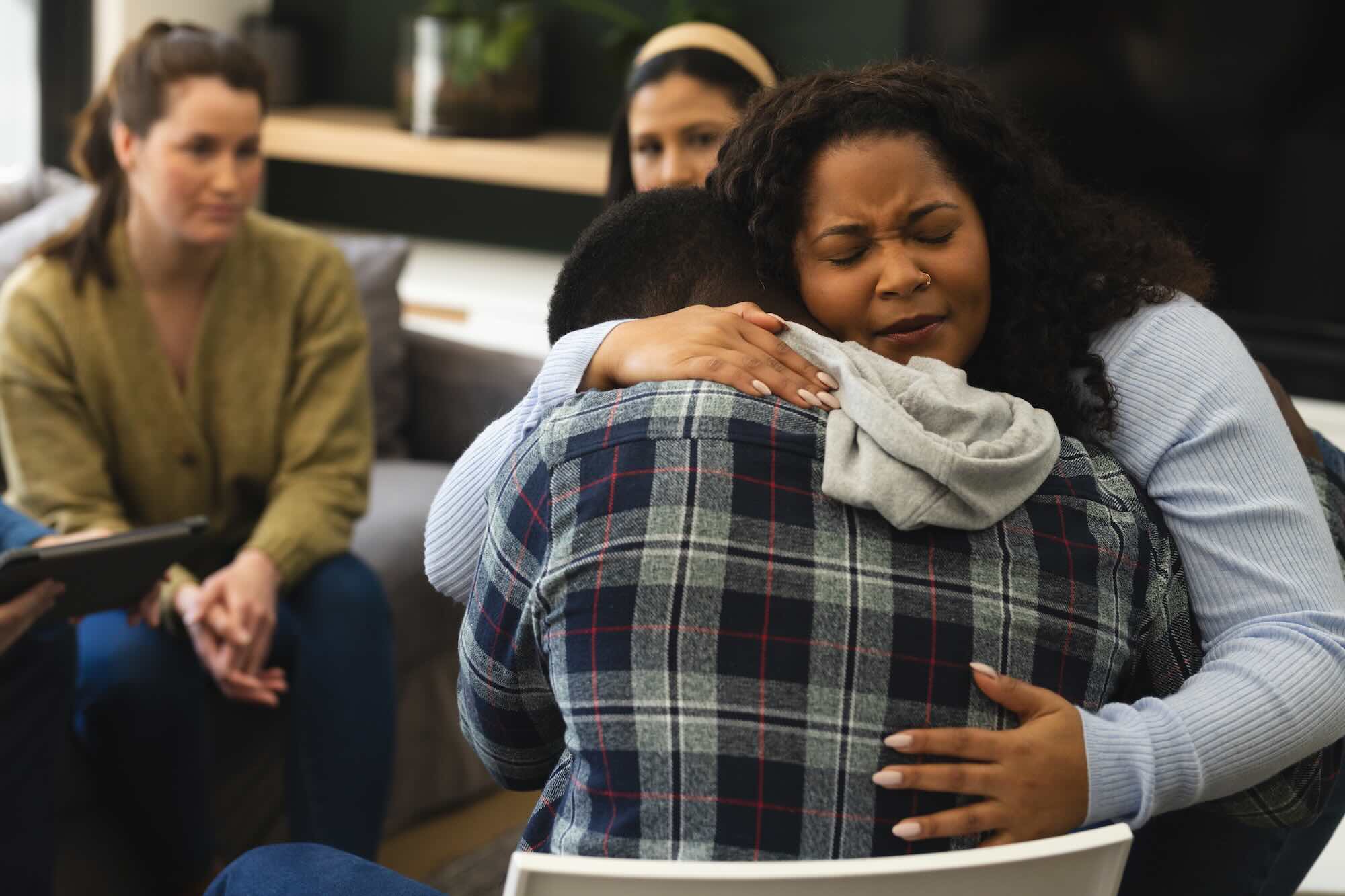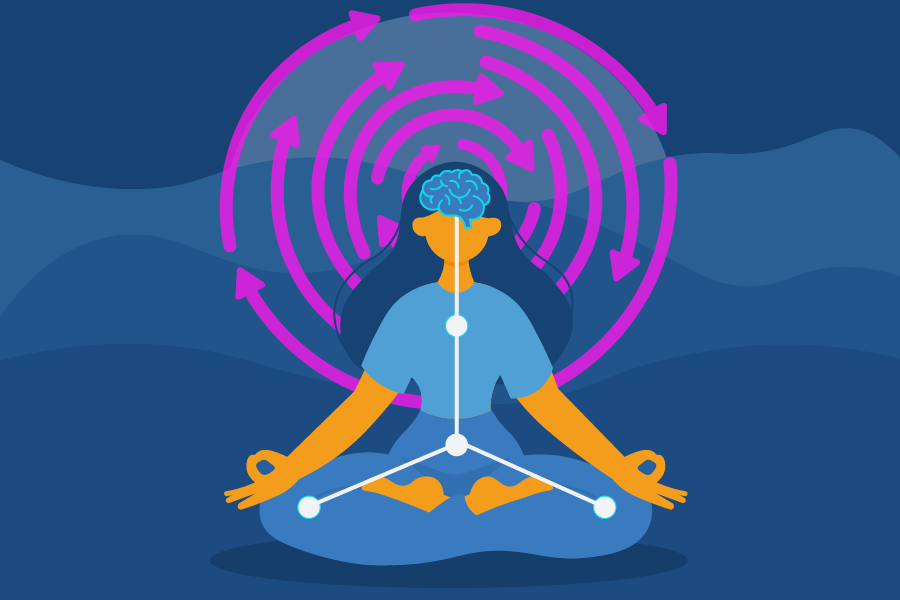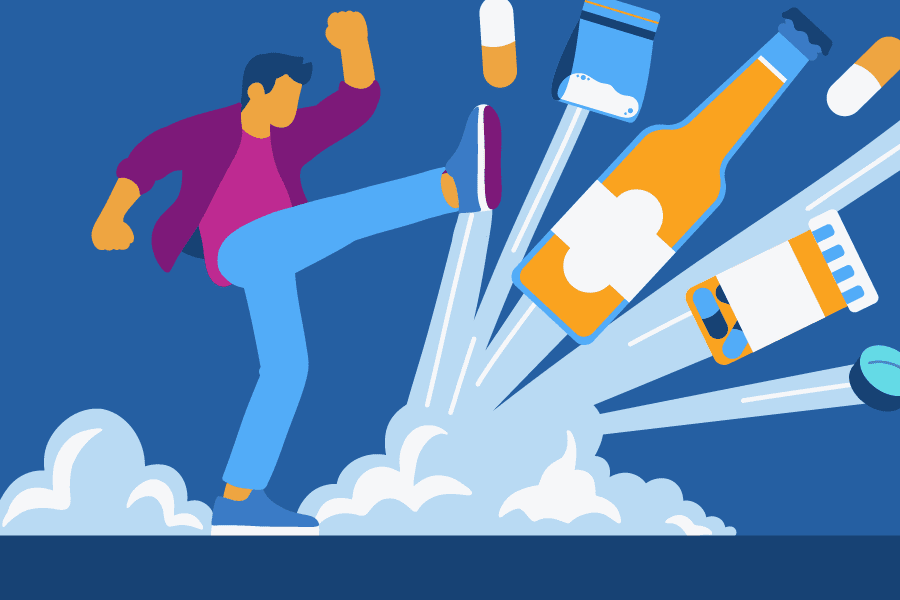Mental Health Awareness: How Common Is Teen Mental Illness?
According to the U.S. Department of Health and Human Services (HHS), nearly half of all adolescents will experience a mental health issue at some point in their lives. With treatment, support, and coping skills, your teen can manage their symptoms of mental illness. The CDC identifies some of the most commonly diagnosed mental health disorders among youth aged 2-17 as:
- Attention-deficit/hyperactivity disorder (ADHD)
- Depression
- Bipolar disorder
- Mood disorders
- Anxiety disorders
- Obsessive-compulsive disorder (OCD)
- Post-traumatic stress disorder (PTSD)
- Generalized anxiety disorder (GAD)
- Behavior disorders
- Eating disorders like anorexia and bulimia nervosa
- Substance use disorder (SUD)
- Conduct disorder
- Autism spectrum disorder (ASD)
These mental health conditions might occur together, which are known as co-occurring disorders. When mental health disorders co-occur with an alcohol or substance use disorder, your teen has a dual diagnosis.
Comprehensive Levels of Care
No matter where you are in your recovery journey, our levels of care are personalized to your unique needs.
What Are the Warning Signs of Mental Illness?
The warning signs of mental illness can be identified by changes in behaviors, emotions, and moods. You might assume your teen is dealing with hormones or “just being a moody teenager.” Still, warning signs of mental illness should not be ignored. These include:
- Decrease in performance or disinterest in school and activities
- Poor grades despite studying and trying to learn
- Severe anxiety and worry, which causes avoidance behaviors
- Physical complaints with no medical cause, like frequent stomach aches and headaches
- Changes in sleeping or eating habits
- Risky sexual behaviors
- Trouble concentrating, which disrupts life at school and home
- Prolonged negative mood and sadness, which might be a sign of depression
- Preoccupation with death or suicidal thoughts
- Self-harm, like cutting or burning
- Alcohol and substance abuse
If you are concerned about your teen, speak to your healthcare provider. When you notice these signs continuing for a week or longer, your teen might have a mental health issue.
What Causes Teenage Mental Illness?
Teenage mental illness is caused by many different factors, including genetics, social environment, self-esteem, and traumatic experiences. Often, early warning signs of a future mental health issue in adulthood occur during youth and adolescence.
- Genetics and family members with mental health or substance use disorders
- Early childhood trauma and abuse
- Biological causes, like chemical imbalances in the brain
- Traumatic brain injury (TBI)
- Prenatal exposure to viruses or harmful chemicals, like alcohol, nicotine, or drugs
- Using drugs and alcohol
- Serious medical issues, like cancer and chronic pain
- Isolation and loneliness
Some of these risk factors cannot be prevented. However, you can prevent issues from worsening over time. Even people at a higher risk due to genetics might not develop a mental health disorder if they take proactive steps.
How Can I Test My Child’s Mental Health?
You can test your child’s mental health by getting an evaluation by a mental health professional. In an evaluation, you should provide your healthcare provider with details about your child’s mental health, including:
- Sleep patterns and appetite
- Behavioral reports from school
- Any recent medical issues that could contribute to mental health issues
- Signs of alcohol or substance abuse
- Your child’s overall mood, especially noting any extreme shifts in lows and highs
- How long you’ve noticed your concerns about your child’s mental health
You might want to consult a trusted family doctor first to rule out any potential physical health causes of these issues.
How Do I Help My Teen With Their Mental Health?
There are several ways for you to help your teen with their mental health. Positive mental health development includes a combination of protective and risk factors. Protective factors are things you can do to reduce the negative impact of risk factors of mental illness, such as:
- Positive support and healthy relationships
- Developing confidence and self-esteem
- Problem-solving and coping skills
- Learning to regulate emotions
- Connections to community—school, sports, family, etc.
- Structure, routine, and predictability at home
- Clear boundaries, limits, and expectations
- Feeling safe and secure
- Mentors and positive role models
These protective factors can look different for your child and family. Most will look like everyday activities; you are most likely already doing many of these things for your teen. However, even if you do things like these, your teen might still develop mental health issues. Mental health treatment can help teens as well as their parents and families get back on track with healthy routines.
Find the Right Facility for Your Needs
Explore our treatment center locations and find an option that works for you.
How Do You Know if You Have Bipolar Disorder?
Bipolar disorder is a brain disorder that causes unusual shifts in mood, energy, activity levels, and day-to-day functioning. It’s marked by cycles of extreme highs and lows known as manic and depressive episodes.
Bipolar disorder can have similarities with other behavioral disorders. Also, not everyone with bipolar disorder will experience extreme manic cycles. For some, they might have cycles of relatively normal moods mixed with periods of depression.
With bipolar disorder, the defining characteristic is the cycle. Bipolar cycles can vary from days to months of mania and depression. Often, you will “crash” from a manic cycle into a depressive state afterward.
Signs of Manic Episodes
- Intense happiness or euphoria and “silliness” in children and teens
- Irritability with a short temper
- Speaking fast and jumping from topic to topic
- Difficulty sleeping through the night without getting tired
- Racing thoughts, making it difficult to focus
- Overly excited and interested in “pleasurable but risky” behaviors
- Poor judgment and decision-making
Signs of Depressive Episodes
- Frequent sadness with no apparent cause
- Increased irritability, anger, or hostility (can also occur during manic episodes)
- Complaints of headaches and stomach aches, often without a physical cause
- Sleeping and staying in bed for longer than needed
- Feelings of guilt, hopelessness, and worthlessness
- Communication problems
- Changes in appetite, either eating too much or not enough
- Lack of interest or low levels of energy
- Suicidal thoughts or behaviors
Which Medicine Is Best for Mental Illness?
The best medicine for mental illness is the one that works best for your teen. Depending on your teen’s diagnosis and other factors, one medication might work better than others. Your healthcare provider can help evaluate potential side effects and effectiveness.
Psychiatric medication can be part of a comprehensive mental health treatment plan but is not a cure. Some mental health medications are there to ease the symptoms while your child develops healthy coping skills. In addition, some medicines don’t have the same level of effectiveness over time. Your teen might need to try different doses or alternative medications.
Mental Health Medications
- Anti-Depressants: Treat mood disorders, like depression and bipolar disorder, and can also help with anxiety, pain, and insomnia. Common types: Zoloft, Prozac, and Celexa.
- Anti-Anxiety Medications: Used for anxiety disorders, like OCD, GAD, and panic disorders. Often paired with anti-depressants or beta-blockers. Common benzodiazepines: Xanax, Ativan, and Valium.
- Stimulants: Help with ADHD by improving focus and attention. Common types: Ritalin, Eveko, Dexedrine, and a combination of amphetamine and dextroamphetamine called Adderall.
- Antipsychotics: Treats psychosis, schizophrenia, bipolar disorder, and severe depression. Some are also used for ADHD and anxiety. Common types: Thorazine, Haldol, Risperdal, and Zyprexa
- Mood Stabilizers: Help with bipolar disorder, schizoaffective disorder, and severe depression by regulating activity in the brain. Some also treat seizures. Common types: Lithium, Depakote, Tegretol, and Lamictal
While medications can be safe and effective, they may come with potential side effects. Psychiatric medications should be monitored closely. The National Institute of Mental Health (NIMH) recommends trying psychotherapy, family therapy, and behavior management techniques before considering medication.
What Can Happen if Mental Illness Goes Untreated?
Untreated mental illness can lead to future problems with mental, physical, and social wellness. When your child’s mental illness goes untreated, they might develop worsening symptoms as young adults. Kids with mental health issues often struggle with socializing, relationships, academics, or developing meaningful activities later in life.
When teens are trying to mask their symptoms, they can often feel too depleted to engage in fulfilling activities like most kids their age. Teens with untreated serious mental illnesses are at a greater risk of developing an alcohol or substance use disorder. Mental health and substance abuse often go together because your teen might use substances to self-medicate.
Due to the risk of substance use disorders and other lifelong issues, mental health treatment is imperative for your teen’s growth and development. If you notice warning signs of mental illness, speak to your healthcare provider about treatment options.
Mental Health and Teens: Help Is Within Reach
Mental health disorders are prevalent among teens and young adults, but you are not alone in this struggle. Comprehensive treatment can help your teen learn to cope with their mental illness. Sandstone Care is here to support teens and young adults with mental health disorders—reach out today for help.









